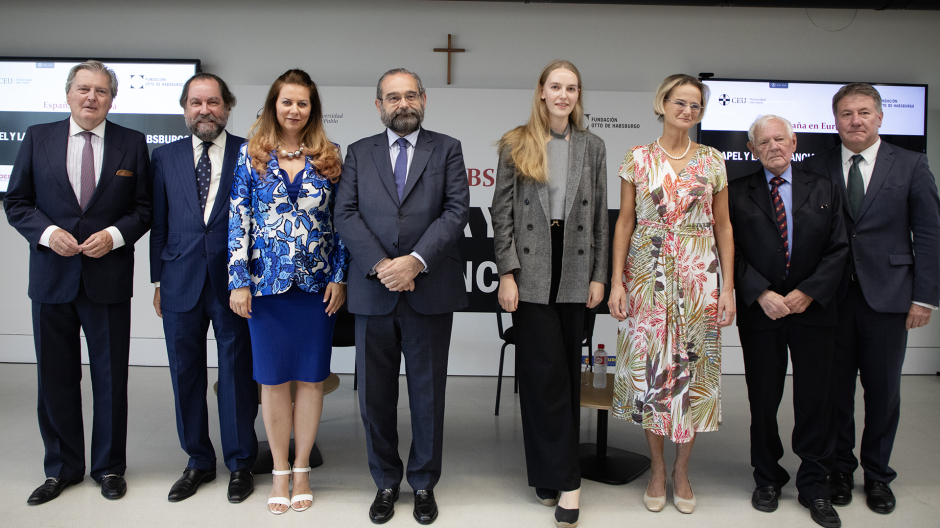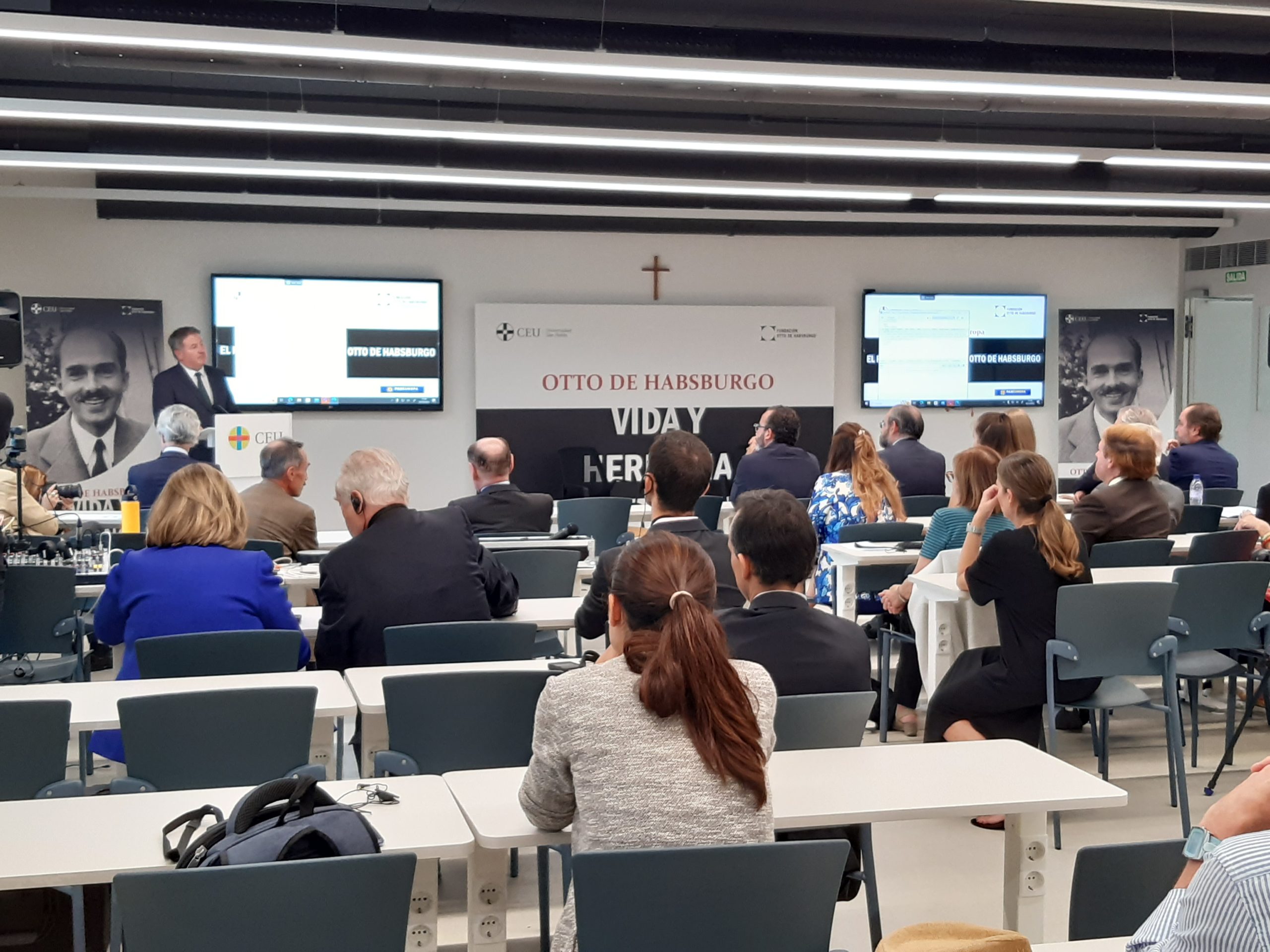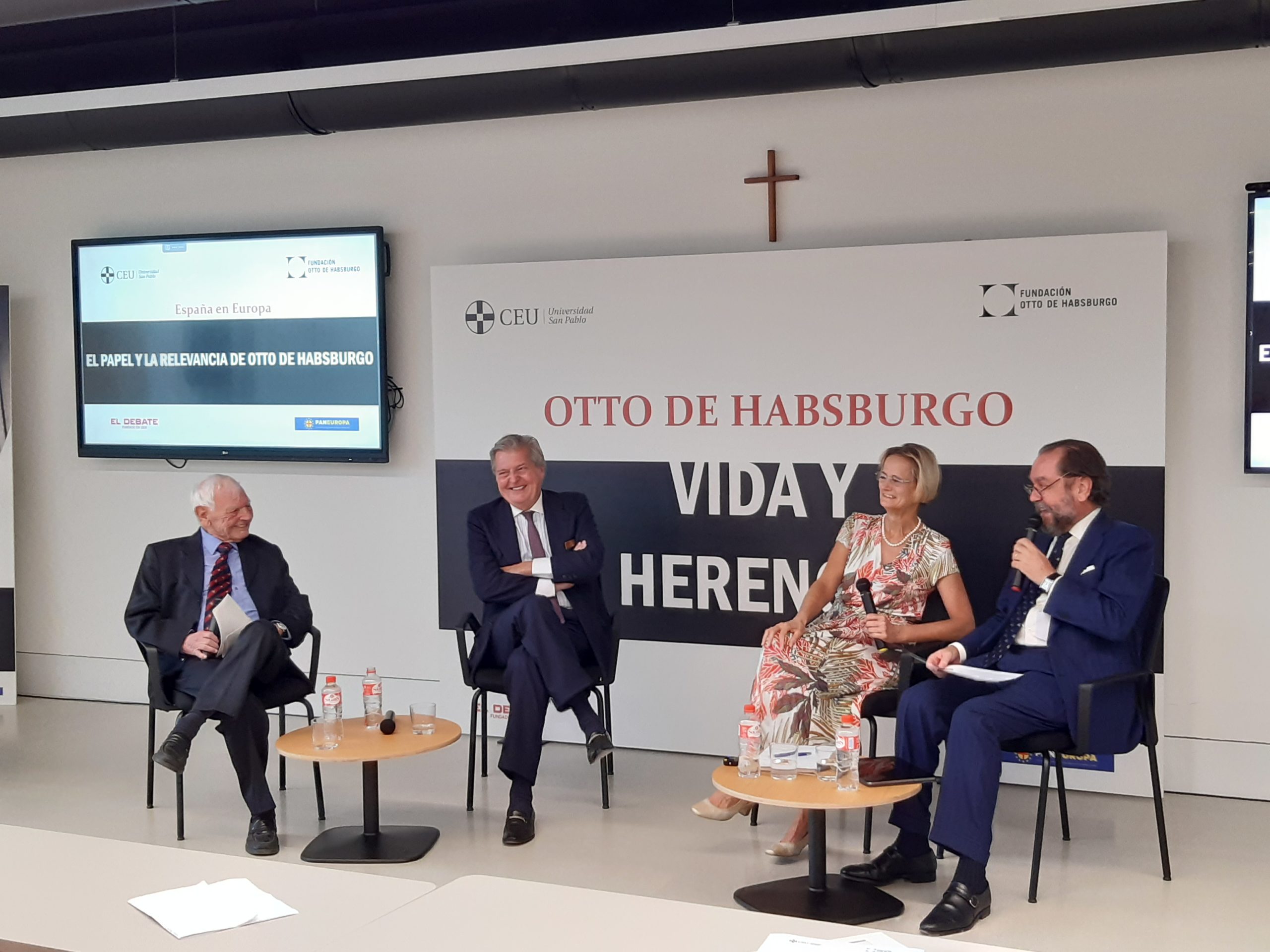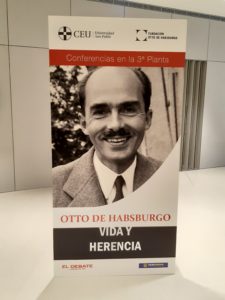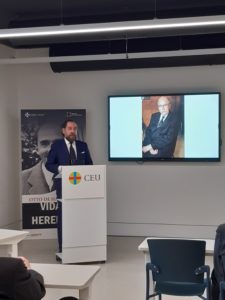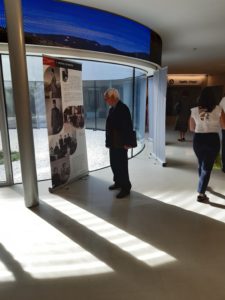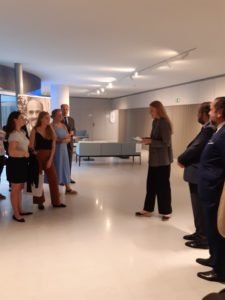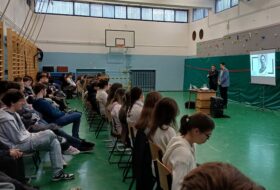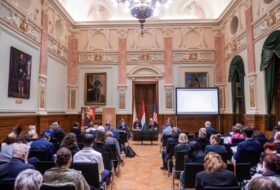On 2 October 2023, after several venues in Hungary and Central Europe, the Otto von Habsburg Foundation’s exhibition “Life and Heritage” arrived in Spain, one of the most influential countries in the life of the former Crown Prince. The exhibition opening in Madrid was preceded by a conference where Alfonso Bullón de Mendoza, President of the San Pablo University Foundation, welcomed the guests. Ambassador Katalin Tóth‘s reflections on Otto von Habsburg’s endeavours for a united Europe, which are just as relevant today, were conveyed to the audience by Kitti Udvaros, diplomat at the Embassy.
The Director of our Foundation, Gergely Prőhle, drew a parallel between the life of the former heir to the throne and that of St. Paul, the eponym of the hosting university, highlighting their shared awareness of the plight of the communities entrusted to them, their commitment to Christian teachings and the promotion of the corresponding social ideals. The apostle Paul and Otto Habsburg are also connected by their ability to remain optimistic despite the great difficulties. He expressed his gratitude to Ramón Pérez-Maura for the outstanding organisation of the conference and to the other participants for the opportunity to discuss – for the second time following the 2021 Otto dinner – the Hispanic aspects of the oeuvre. He underlined that Otto von Habsburg was a crucial political actor in Spain’s international opening and later European integration –in which István Mustó played a significant role as well. Professor Mustó, who became acquainted with Otto von Habsburg in 1951 at the beginning of his university years in Madrid, later became involved in the accession process as a German government official.
The other roundtable panellists – Enikő Győri and Íñigo Méndez de Vigo – are carrying on this political legacy, committed to the future of Europe, Spain and Hungary. The daily activities of the Otto von Habsburg Foundation were presented in Spanish by Laura Balázs, Communications Officer at our institution, who underlined that due to the ongoing digitisation work, more and more documents and photographs are becoming available on the Foundation’s website.
Ramón Pérez-Maura, historian and one of the leading experts on the work of Otto von Habsburg and a columnist for El Debate magazine, gave a historical overview of the Archduke’s life, from his exile in Lekeitio to his service in the European Parliament. He recalled that Otto von Habsburg never forgot the country that welcomed him and his family in the turbulent times following the First World War and, as soon as the political situation allowed, selflessly supported its accession to the European Union. Nóra Szekér, a member of the Historical Archives of the Hungarian State Security, outlined the achievements of Ferenc Marosy, who rendered invaluable services to the Hungarian emigration by managing the Hungarian Royal Embassy for two decades (1949-1969).
The speeches were followed by a round table discussion. The central topic was the impact of Otto von Habsburg’s legacy on the European Parliament. Enikő Győri, Member of the European Parliament of Hungary, stressed the importance of defending Christianity and maintaining equilibrium between states, as these two factors are vital not only in times of peace but also in wartime. Íñigo Méndez de Vigo, former Spanish Minister, echoed the MEP’s statement and called attention to addressing European conflict situations from within. However, he pointed out that this mentality is a long-term learning process and cannot be acquired overnight.
István Mustó, economist, former politician and university professor, emphasised the exemplary quality of the country’s development. Assessing the current situation on the continent, he mentioned the challenges he believes the European Union must face: restoring the political power of Europe and the implications of the loss of economic and cultural hegemony while simultaneously preserving national identity.
All three speakers agreed that Otto von Habsburg worked to defend the unity of Europe. Nothing is more proof of that than his proposal to place an empty seat in the parliamentary chamber during the Cold War, which compelled the members of the continent’s foremost decision-making body to consider the fate of the people behind the Iron Curtain on a daily basis.
The exhibition on the life of Otto Habsburg, his childhood in the Basque Country and his subsequent visits was opened by his granddaughter, Sophia von Habsburg. She explained that it was a life-changing experience for her grandfather when Spain welcomed the exiled royal family during the difficult period after the First World War and recalled their later vacations in Benidorm. Finally, she thanked the Foundation for its work, through which the life and deeds of Otto von Habsburg are becoming more widely known both in Hungary and Europe.
Cover photo: El Debate
